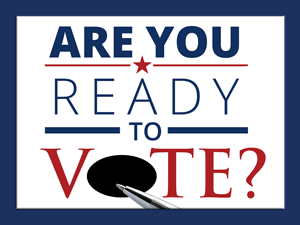Let’s have a discussion. The topic may seem controversial at first glance but one that is worthy of thought. In fact, think of this as a thought experiment; an idea you may not agree with, yet is not without merit.
As I write this America is celebrating Memorial Day. A national holiday that asks us to collectively reflect on the sacrifices made by those who have died serving in our armed forces. Did you know that today less than 1% of Americans serve in the armed forces? This is a stunning number given how many “patriots” we have on social media ready to cry “Treason!” when they see or hear something that causes offense. Given today’s climate you would think half of our country served some time in the armed forces. 9% of our population are veterans. Fewer and fewer people are signing up to serve. I can only hope this trend continues and becomes a driving reason for fewer wars and more diplomacy.
If only 1% is willing to defend our country, what should the other 99% do? What is the least we should be willing to do to serve our nation?
If you had asked me this question an month ago I would have said, Vote. “Voting in elections”, I would have said, “is not only a right, but a duty that every American should exercise”. In the past, I have argued that America should make presidential election day a National Holiday just as they do in other countries. My conviction about voting was strong, and it was my long held belief that those who did not vote were doing the country a disservice and were partially responsible for the D.C swamp that is the American government. But then I heard about Walter Lippmann, and I had to seriously reconsider my opinion.
Most of you know I am a huge, huge fan of podcasts; so much so that I dedicated a past blog to some of my favorites. One that has grown on me is Stuff They Don’t Want You to Know. It started out as a web series that looked at the lighter side of conspiracies, but is now a be-weekly podcast that looks at the darker side of history.
A few weeks ago an episode aired titled Is Democracy Impossible (May 2, 2018) in which the hosts talked about the controversial subject that pushes against democracy. This is how I came to learn about Walter Lippmann.
Lippmann was a newspaper columnist whose influence was felt worldwide. By the time of his retirement Lippmann was the most respected political columnist in the world. Here is a quick political bio on Lippmann.
“While studying at Harvard (B.A., 1909), Lippmann was influenced by the philosophers William James and George Santayana. He helped to found (1914) The New Republic and served as its assistant editor under Herbert David Croly. Through his writings in that liberal weekly and through direct consultation, he influenced Pres. Woodrow Wilson, who is said to have drawn on Lippmann’s ideas for the post-World War I settlement plan (Fourteen Points) and for the concept of the League of Nations. Lippmann was briefly (1917) an assistant to Secretary of War Newton D. Baker. Wilson sent him to take part in the negotiations for the Treaty of Versailles (1919)”.
Lippmann started out as a champion of voting rights and felt it was a duty of all American citizens. But as time went on, as the world become smaller and global relationships became more complex, and witnessed less than ideal candidates being voted into office Lippmann developed a startling argument; he came to believe that “the general public could no longer judge public issues rationally, since the speed and condensation required in the mass media tend to produce slogans rather than interpretations”.
This is a two-pronged argument. Lippmann believed that the general public was unable to fully comprehend the complex global issues facing the country and that the media was unable or unwilling to educate the public; it was easier to dissect and strip the issues into digestible sound bites. Ouch! That cut may run deep, but can we truly argue against it given our current state of media and collective short attention span?
Lippmann published a book in 1922 titled Public Opinion. In part he argues that:
A revolution is taking place, infinitely more significant than any shifting of economic power…. Under the impact of propaganda, not necessarily in the sinister meaning of the word alone, the old constants of our thinking have become variables. It is no longer possible, for example, to believe in the original dogma of democracy; that the knowledge needed for the management of human affairs comes up spontaneously from the human heart. Where we act on that theory we expose ourselves to self-deception, and to forms of persuasion that we cannot verify. It has been demonstrated that we cannot rely upon intuition, conscience, or the accidents of casual opinion if we are to deal with the world beyond our reach.
In a nutshell, Lippmann is arguing that the world is now intertwined and complex. Most people are incapable of understanding this complexity and don’t take the time to learn how the actions taken by governments will impact the economic and social fabric of society. It is no longer useful to think we can vote from our conscience, since our conscience may be deluding and keeping us ill-informed. The media feeds on this delusion be spinning casual opinions that do not fully inform us as to what is in our best interest.
Again, it is hard to argue against him. Many Americans no longer balance their own checkbooks and or are deep in debt and can’t understand why. How are they to fully understand what lifting or putting more restrictions on Iran will do to gas prices or cause fuller ripples in the Middle East? How about Trump’s slogan, “America First”? It may sound good to working Americans, (sound bite) but what does it really mean, and how will this attitude reflect on the cost of consumer goods? Do you know? Does the media tell us the truth? And if they do, whose truth are they repeating?
Lippmann didn’t just argue against what we now term “low informed voters”, he was dismayed to see one-issue voters; those who would vote for a candidate based on his or her stand on a certain issue alone. These voters, Lippmann argued often voted against their overall self-interest. A good example of this is when a voter decides on a candidate based on his or her anti-abortion stand. This is hot button issue today that sees mass voting for politicians who want to limit or outright strip away abortion rights on one hand, and on the other, making it hard to get access to birth control, leading to more abortions. Where is the logic is this?
It was in this argument that I stopped mentally arguing against Lippmann’s ideas. I shut my mouth and opened my mind. As the hosts of Stuff They Don’t Want You to Know gave more and more examples of how one-issue voting can cause over-all damage to democracy I started to form a thought experiment; what if only those who are truly informed on all things that mattered voted? Of course the first obvious problem that comes from this thought experiment is figuring out who decides who can vote and do they have democracy’s best interest at heart?
Recently Bill Maher had guest Dambisa Moyo on Real Time with Bill Maher. Moyo is an international economist and author who analyzes the macroeconomy and global affairs. She has witnessed democracy in several forms and is in the same camp as Lippmann. One of her suggestions regarding voting is to test voters, much like the test we give to new citizens. She was criticized for suggesting what seemed like a type of Poll Test. Something the Southern states tried to employ to weed out African American voters. No, I don’t think the answer is to test people; after all voting is a right and we should be able to freely exercise that right without restrictions. But Lippmann and Moyo’s view does beg the question; must you vote? I say no. Not if you vote based on a gut feeling, or one-issue without doing some homework and reflection on what your vote will do for your over-all self-interest as well as the country’s.
If you can’t bring yourself to watch debates, if you can’t take an afternoon or evening to read about candidates and how their views and voting record will effect us all, please stay home. Don’t vote. That is the very least you can do for our country.
Now, it’s your turn to weigh in. Tell me what you think.
Works Cited
New York Times As Fewer Americans Serve, Growing Gap Is Found Between Civilians and Military
https://www.nytimes.com/2011/11/25/us/civilian-military-gap-grows-as-fewer-americans-serve
Stuff They Don’t Want You To Know, episode Is Democracy Impossible (May 2, 2018)
Walter Lippmann, Public Opinion. 1922 https://wwnorton.com/college/history/america-essential-learning/docs/WLippmann-Public_Opinion-1922.pdf
Walter Lippmann. Britannica.com https://www.britannica.com/biography/Walter-Lippmann#ref101232









You must be logged in to post a comment.